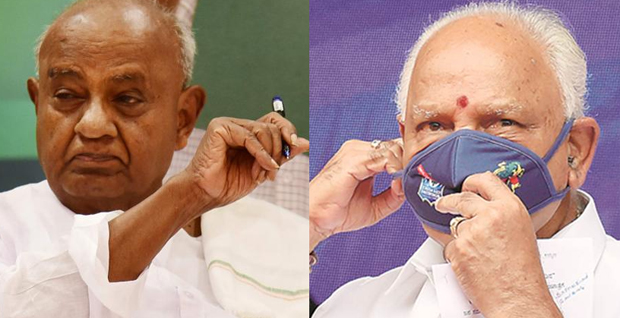
Bengaluru, July 28: Former prime minister and JD(S) chief H D Deve Gowda today threatened to launch a state-wide agitation in against the amendments made to the Karnataka Land Reforms Act.
Gowda’s opposition to the new law comes even as Congress leader Siddaramaiah is also doggedly pursuing it.
Demanding that the state government immediately rollback the ordinance empowering these amendments, the octogenarian leader said he personally would take to streets if the government failed to budge.
The B S Yediyurappa government has liberalised the land reforms law by removing restrictions on non-agriculturists from purchasing and owning farm lands.
The government has also amended the APMC Act and has tweaked labour laws, which are all “against the interest of the state and must be rolled back,” Gowda said.
Speaking to reporters here, Gowda stated that he had already written thrice to Chief Minister B S Yediyurappa in this regard. "The ordinances have to be taken back. The amendments to Karnataka Land Reforms Act, by repealing sections 79-A, B and C, is an anti-farmer move. The APMC Act amendment, too, is against the interest of the state. The government has failed to speak about the impact of these amendments," said Gowda, who is now a Rajya Sabha member.
Elaborating on the amendment to the Land Reform Act, the JD(S) patriarch opined that by throwing open agricultural land ownership to anybody at all, the government was only helping real estate developers while pushing farmers into a “vulnerable” situation.
Amidst all this, there are now reports of funds misappropriation in Covid-19 relief measures and in procurement of medical equipment, he said, adding that it seemed like only the corrupt became stronger over time.
Further, Gowda lambasted both national parties for creating political unrest, referring to the ongoing political crisis in Rajasthan and the recent developments in Madhya Pradesh. However, he added that he would not wish to dwell on it much, while emphasising that his focus was primarily on strengthening his own party at this point in time.






Comments
Add new comment